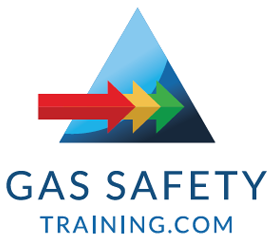Please select whether you require training for a commercial organization or a university, college or high school.
Training on the safe use, handling and storage of gas cylinders and equipment is vital to keep everyone safe from harm.
It should be documented so it can be proved who received the training and when.
Our online learning is a simple way to provide cost effective certificated training to employees in the workplace, educators and students.
Gas Cylinder Training FAQs
- What is gas cylinder training?
- Is gas cylinder training a legal requirement?
- Do students need to be trained to handle and use gas cylinders?
- How do you use a gas cylinder safely / what are the safety measures?
- What are the four kinds of compressed gases?
- What is the shelf life of a gas cylinder?
- Can a gas cylinder explode?
- How much pressure is in a gas cylinder?
What is gas cylinder training?
Gas cylinder training is the process of providing an individual with information and instruction to enable them to use and handle gas cylinders safely. This knowledge, together with the necessary experience and capability, enables them to become competent to use gas cylinders and associated equipment.
Is gas cylinder training a legal requirement?
In most developed countries it’s a legal requirement for employers to provide training to employees relating to the job they do and to establish their competency. This is to keep the employee safe, plus anyone they may come into contact with such as colleagues and members of the public. Refresher training should be provided as required and/or set out in law to ensure the employee remains safe and competent.
Do students need to be trained to handle and use gas cylinders?
In most developed countries the requirement to provide training extends to all individuals in the care of an organization, for example students who are not employed by the organization but for whom they have a legal responsibility and duty of care.
How do you use a gas cylinder safely / what are the safety measures?
There are many precautions needed to handle and use gas cylinders and equipment safely. The provision of high quality professional training will ensure individuals are aware of them. The training will cover topics including appropriate Personal Protective Equipment (PPE) and the need undertake pre-use equipment checks and leak tests .
What are the four kinds of compressed gases?
Compressed gases fall into four categories:
- Inert gases such as nitrogen
- Oxidants such as oxygen.
- Fuels such as hydrogen.
- Toxic and other particularly hazardous gases.
What is the shelf life of a gas cylinder?
Different gases have different shelf lives. They can vary from a few months to many years. Gas cylinder suppliers often fix labels to their cylinders to show the shelf life. If you are unsure, contact the supplier.
Can a gas cylinder explode?
Yes it can. A fire in the cylinder itself, or the external heating of the cylinder during a fire can cause it to explode, rupture or launch in a way similar to a missile. Cylinders can travel over 650 feet (200 meters).
How much pressure is in a gas cylinder?
Different types of gases and different types of gas cylinder are filled to different pressures. Also, fill pressures can vary from one gas supplier to another. Gas cylinders should have a label or marking to show the fill pressure of the gas inside. You must know the pressure inside the cylinder so you can be sure the equipment you are attaching to it can handle it. If you are unsure, contact the supplier.
What our customers say
“All of our learners found the online courses straight forward and easy to follow, including those that were not PC literate. The online courses have the added advantage that they can be taken as and when time allows, and at the candidate’s own pace. Being taken at the normal place of work, combined with the flexible time scale, also makes them very time and cost effective for us.”








